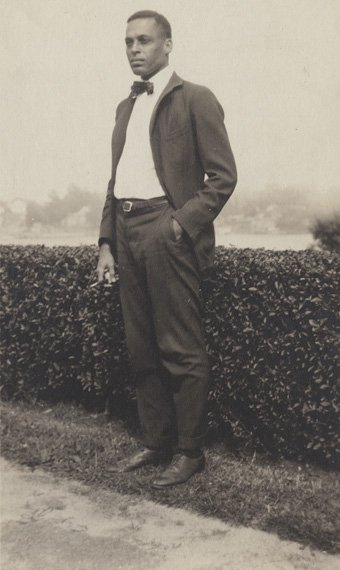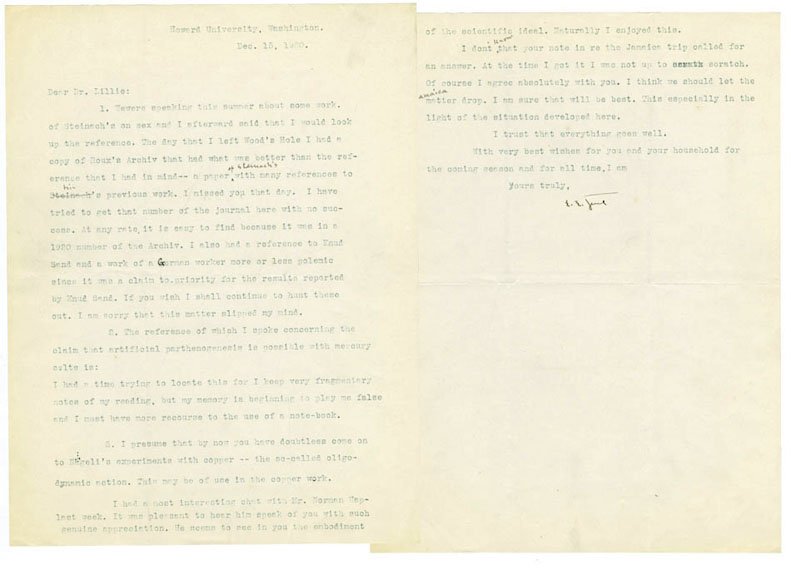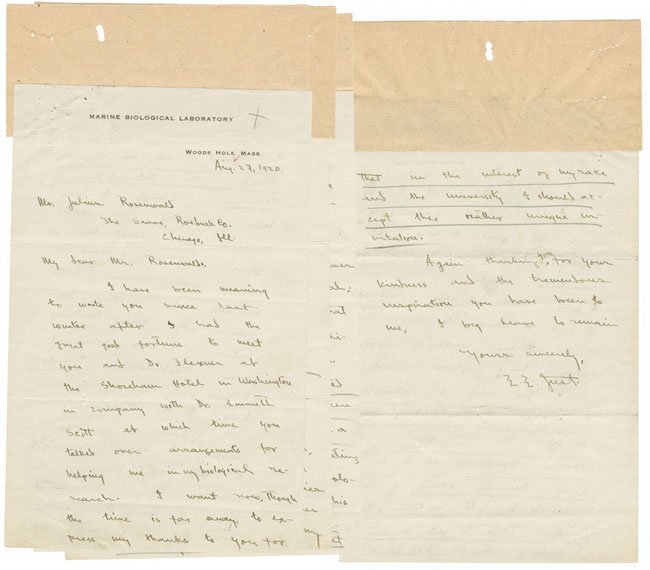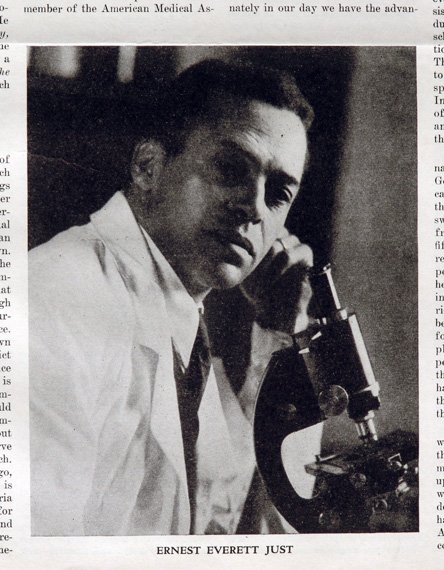Future Intellectuals: Ernest Everett Just (PhD 1916)
Among accidents of history in the story of the integration of the University of Chicago was the presence within the zoology faculty of strong supporters of racial equality. Professors Warden Clyde Allee and Frank Lillie went out of their way to recruit and support African American students in the fields of zoology and marine biology.
Charles H. Turner, whose 1907 dissertation analyzed the homing pattern of ants, was the first African American to earn a PhD at the University of Chicago. Other African American students to study zoology in the early 20th century were Ernest Everett Just and Miss Roger Arliner Young.
Ernest Everett Just was born in 1883, earned a BA at Dartmouth in 1907, and immediately took a position teaching literature at Howard. While at Howard he made the acquaintance of Professor Frank Lillie, who encouraged him to pursue advanced degrees at the University of Chicago. Lillie, a future Dean of the Biological Sciences Division, was closely involved in the establishment of the marine biology center in Massachusetts known as Woods Hole, and he and colleagues like Allee involved African American students in research there even when securing their enrollment in courses of study was impossible.
Just began work with Lillie at Woods Hole but enrolled at the University of Chicago in absentia in 1911. He completed his PhD in zoology in 1916. Lillie supported Just throughout his career in pursuing research funds and opportunities beyond what his employer, Howard University, could provide. The two men maintained a life-long friendship.
During his dissertation research, Just made an important discovery about cell cleavage; his most important publication was The Biology of the Cell Surface (1939).
Embittered by American race relations, Just spent the 1930s in Europe, returning to America as Europe headed to war. He died in New Jersey in 1941.




